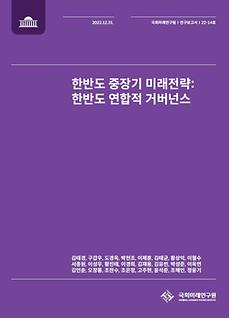
The potential for permanent peace and integration on the Korean Peninsula is an issue of paramount importance. This study presents a comprehensive strategy for confederal governance as a means of achieving this goal, with a focus on a 15-year long-term perspective. It defines confederal governance as the institutionalization of peace, which goes hand in hand with consociative governance involving citizens’ participation on the Korean Peninsula. We first bring forward the future forecast for joint prosperity on the Korean Peninsula 30 years later, and then the results of our Focus Group Interviews on the future preferences of the future generation 15 years later. Based on the “possible futures” and the “preferable futures,” we propose mid- to long-term strategies and short-term priority goals that contribute to realizing the future preferences of the youth generation and preventing the “aversive or fearful futures” that residents of the Korean Peninsula want to avoid.
The EU's long-term, multi-layered confederal governance serves as a model for this study, with a particular emphasis on the “differentiated integration” process that accommodates varying timings, levels, and scopes of integration across policy areas. As key results, this study highlights that the precondition for confederal governance on the Korean Peninsula is the institutionalization of peace, which is necessary to avoid military tension in the short-term future (2022-2027). This study also prioritizes policy areas in high demand for integration, including linguistic and cultural cooperation, climate change action, and border cooperation. Furthermore, it stresses the “community of people,” which is the key to the construction of a common identity, proposing that, in the process of consociative governance, where the National Assembly has a significant part and encompasses civil society, new narratives and identity should develop.